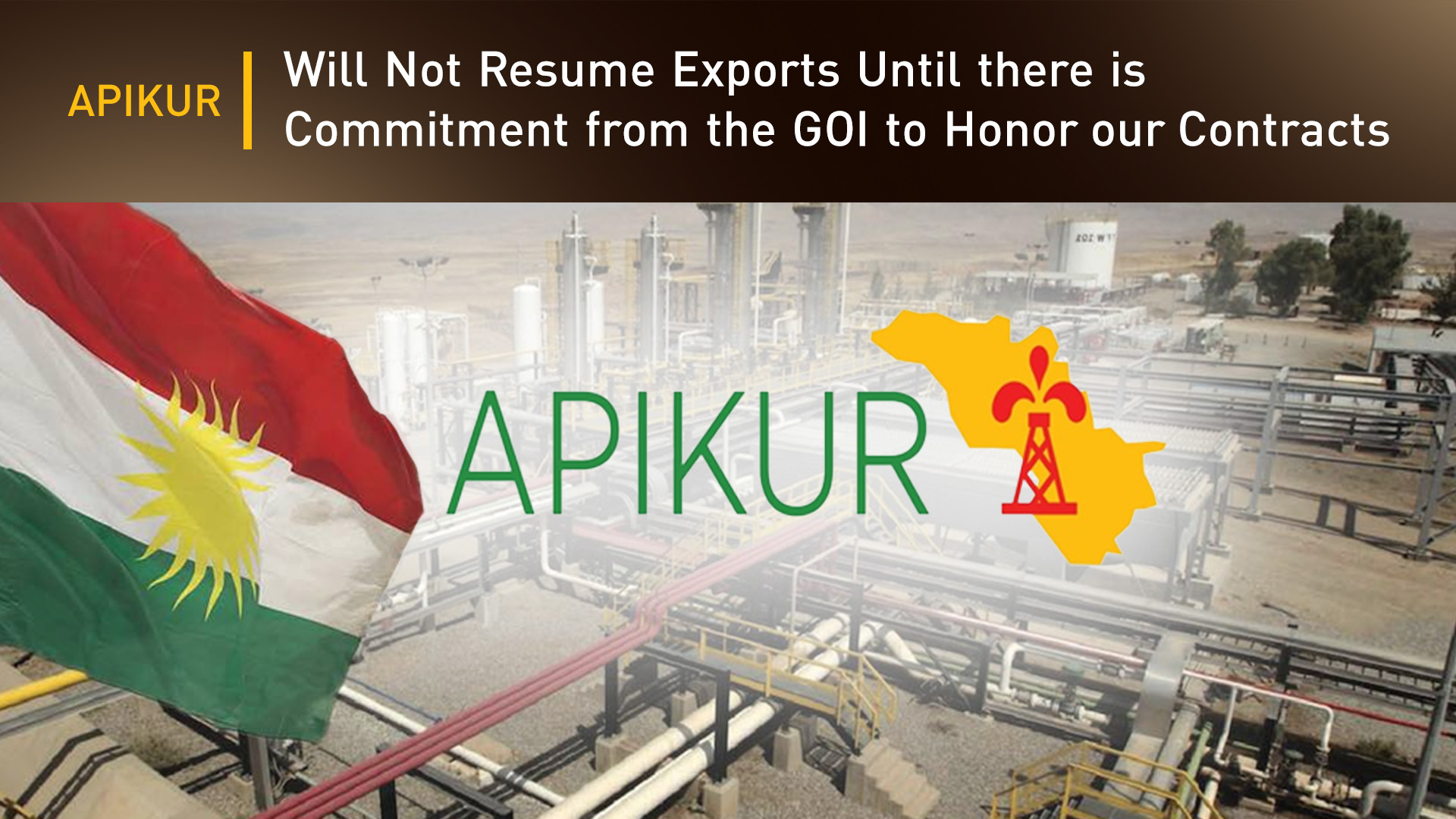APIKUR Rejects Iraq’s Oil Ministry Approach, Refuses to Resume Exports
APIKUR rejected Baghdad's unilateral contract changes, warning that exports via the Iraq-Turkey pipeline won't resume unless original terms are upheld.

By Ahora Qadi
ERBIL (Kurdistan 24) – The Association of the Petroleum Industry of Kurdistan (APIKUR) has expressed strong dissatisfaction with the Iraqi Ministry of Oil’s handling of negotiations regarding oil exports through the Iraq-Turkey pipeline, accusing Baghdad of attempting to unilaterally alter legally binding contracts.
International oil companies (IOCs) operating in the Kurdistan Region, in coordination with the Kurdistan Regional Government (KRG), have engaged in negotiations with the Government of Iraq (GOI)—including direct discussions with Prime Minister Mohammed Shia' al-Sudani’s office—to reach a resolution for resuming exports in line with legal agreements and Iraq’s budget law.
However, APIKUR announced that Iraq’s Oil Ministry has shown an unwillingness to negotiate a solution that respects the sanctity of contracts signed between IOCs and the KRG. Instead, the ministry is reportedly working to establish a unilateral framework that would alter the economic terms of these valid agreements.
APIKUR’s Firm Stance: No Exports Without Guarantees
APIKUR categorically rejected the Ministry of Oil’s approach, declaring that its member companies will not restart oil exports unless Baghdad makes a clear commitment to:
- Honor existing contracts
- Ensure payment guarantees for past and future exports
APIKUR described Baghdad’s unilateral attempts to reshape contract terms as unacceptable, warning that without adherence to the original agreements, there will be no resumption of exports through the Iraq-Turkey pipeline.
Export Impasse and Economic Repercussions
The pipeline, which transported approximately 450,000 barrels per day before its closure in March 2023, remains offline due to political and legal disputes. APIKUR’s latest statement underscores the growing frustration of oil companies over Baghdad’s handling of the matter, raising concerns about the economic impact on both Iraq and the Kurdistan Region.
As the standoff continues, observers warn that prolonged delays in resuming exports could further strain relations between Erbil and Baghdad, while reducing Iraq’s overall oil revenues at a time of global energy uncertainty.
